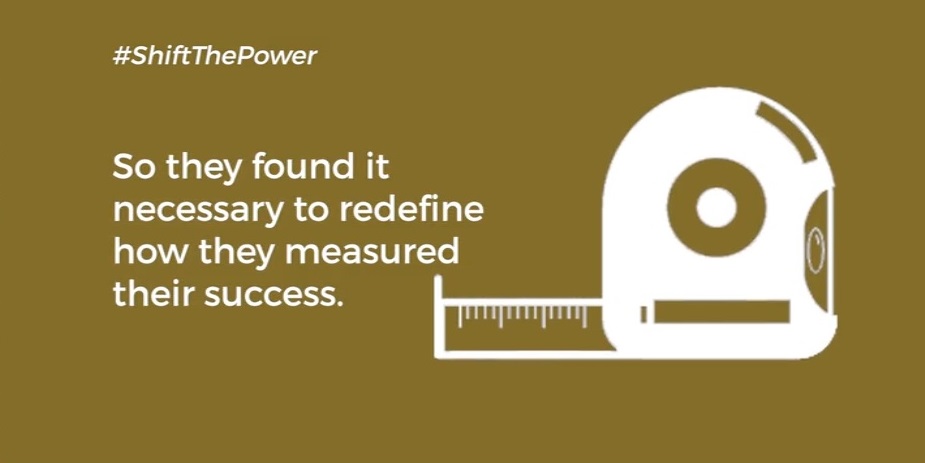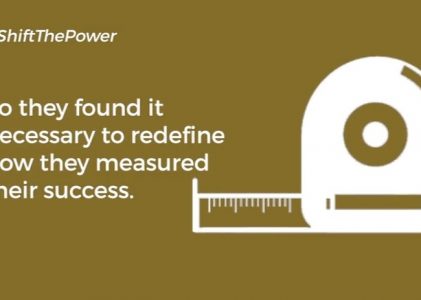
Indonesia for Humanity (IKa) was established to support pro-democracy movements and survivors of human rights violations. The organization was established by activists to support other activists through small grants. From the mid-1990s up to the early 2000s, we had mainly been donor dependent. However, when Indonesia started to democratize, many donor agencies that had funded us also started to open their offices within Indonesia and IKa lost much of its funding. In 2010, we started a new journey, experimenting with local fundraising and mobilizing local resources. Over time, we have learned that resources are not just about money; they include various intangibles such as networks which have also contributed to IKa’s evolution.
When we started the new journey, we did not want to replicate the hierarchical relationship that usually exists between donors and grantees. One of the first things we considered was the nature of our relationships with our ecosystem of partners and the people that receive our funds. We envisioned ourselves as part of a community of enablers in a circle of multiple actors playing different roles but positioned as equals. We also found it necessary to redefine how we measured success and to explore a different approach to measuring.
Why search for a different approach to measurement? We were unhappy with the current system, which is extractive and reductive in terms of capturing the complexity of our work. Moreover, it was also unaffordable to us. There is an entire industry of monitoring and evaluation that has a standard of payment that we would never be able to meet. We also did not want to simply do a cheaper version of the conventional model. We needed to develop a new paradigm. When we engaged our partners to take part in a different way of measuring, many of them embraced the idea and shared just how traumatic the conventional model had been for them. All this coincided with a moment when we, the community of activists and movements in Indonesia, were going through a soul searching of our own as we saw the country regress in terms of democracy and human rights.
When we started the new journey, we did not want to replicate the hierarchical relationship that usually exists between donors and grantees.
When we started these conversations in 2018, it had been over 20 years after Indonesia’s reform movement that ended the authoritarian regime in 1998. But by 2018, the authoritarian practices had started to re-emerge. The political discourse at the grassroots showed that a strong, dominant force had captured the imagination of the masses, particularly the extreme-religious right. We had some very specific questions – such as how effective had we been as a movement? Because things had gotten worse after 20 years of really hard work. In that moment of soul searching, we convened discussions with leaders in the movement to ask how to understand our effectiveness, how to reflect and learn from the journey, and how important this practice would be for the sustainability of the movement itself.
We also read several documents; one was a reflection by Robert Chambers titled Can We Know Better? He said, “to make our rhetoric real cries out for a revolution in development knowing, thinking, and practice everywhere, we have to transform how we see things, how we behave, how we interact, how we learn and know, and what we do.” We felt affirmed by Robert Chambers’ conviction that knowledge is not singular and there are many knowledges. We also read Measuring What Matters by Dana R. H. Doan and Barry Knight which quotes Richard Tarnas’ work, Cosmos and Psyche: Intimations of a New World View: “to understand life and the cosmos better, perhaps we are required to transform not only our minds but our hearts. For the whole being, body, and soul, mind and spirit are implicated. Perhaps we must go not only high and far but down and deep.”
Out of this, we embarked on a process that was not only about reviewing, evaluating or measuring our work but also about building knowledge about ourselves as a social movement. We looked at the four success criteria for an alternative measuring system in Measuring What Matters: “It will be useful, and it will be used. It will be easily adaptable to different contexts and interests; it will provide inspiration rather than standardization. It will be accountable and empowering to the people and communities we aim to serve.” Plus it had to be affordable for a small organization like ours that wants to stay small and not become a big organization.
What we are doing as a fund is to enable the intermediary steps for a change that may occur only after an entire generation – maybe 25 years – as this is how genuine transformation happens.
So, what is the approach we pursued and how is it different? First, it was about language. We did not want to use the term “monitoring and evaluation.” We instead created a new vocabulary that comes from the root word “makna”, which means meaning. To that word, we added the prefix “pe” and suffix “an” becoming “pemaknaan” which means the act of giving meaning. From this, we created a new word that is “Pemakna”, which means the person who carries out the giving of meaning. All this was done using Indonesian grammar.
The Pemakna is recognized as part of our community of enablers. We define the process of pemaknaan as “a process-in-dialogue that builds a contextual understanding, provides affirming recognition and engages with critical-constructive observations regarding efforts initiated by partner organizations and their respective communities.” This process intends to strengthen, in reflective and strategic ways, the potential of success for achieving transformative change by social movements.
What we measure is the transformative capacity of our partners and their initiatives. In our mind, transformative capacity means having the intention, strategy and capacity to take preliminary or intermediary steps to achieve transformative change. Even though we are a small organization that gives small funding to grassroots organizations that are also small, our agenda and purpose is huge: social transformation. We wanted to find a way in which we could confidently say that small resources for small initiatives can contribute to transformative change, if there is the intent, strategy and capacity. What we are doing as a fund is to enable the intermediary steps for a change that may occur only after an entire generation – maybe 25 years – as this is how genuine transformation happens.
One of the principles in our method is to celebrate subjectivity. This is in contrast to the predominant aim of measuring objectively. We bring in seasoned activist-thinkers who come with rich, deep and sometimes even painful experiences of pushing for transformative change under difficult circumstances. We believe this background will contribute positively in terms of giving meaning to the community initiatives we support. We want our process to serve as collective spaces for shared learning that engage in a relational approach based on trust and mindfulness. All this is to be conducted based on the ethics of care.
One of the principles in our method is to celebrate subjectivity.
The other distinguishing element in our model is agency. Who is doing the act of giving meaning? We didn’t want to call them evaluators. We called them pemakna – a qualified observer with a good understanding of the social, political, and economic dynamics in society, who champions justice, human rights and ecological sustainability. This person must also be willing to function with independence and in the spirit of solidarity. We look for people who are within the movement but can still act and analyze independently. We also seek people that will act in solidarity because we do not pay a big fee to do this. We pay pemakna the equivalent of a monthly salary of a bus driver. The pemakna have to be active in their community, they must have individual expertise and they have to be interested in contributing to knowledge building in pursuit of social transformation. When we invite people to be pemakna we don’t ask them to help us to review our grants. Our invitation to them is: “Do you want to join us in building knowledge from the ground up on the work of social transformation?”
The pemaknaan approach stands on the subjectivity of the pemakna who brings in a certain point of view and a particular understanding that is relevant to strengthen the work of movements towards social transformation.
Our first step is to seek out local partners interested in this knowledge-building exercise. We engage with them to understand their learning needs. We ask them what type of learning they need. We then ask them if we were to find a pemakna that would fit their needs, what kind of criteria would they want us to consider? Based on this, we identify candidates and ask them if they are willing to be pemakna. We do an orientation session to introduce the model – because it is fairly new. After that, each pemakna engages directly with specific local partners. We also do cross-learning sessions among the pemakna so they can learn from each other as well. After they write up their notes, we bring everyone together to share learnings and to discuss options for moving forward. The whole process is assisted by a learning facilitator. The pemakna we select tend to be reflective people that enjoy writing and have many years of experience. We are well placed to find these people because IKa is part of the ecosystem of social movements. We don’t call their writings reports, rather we call them notes to imply that these are ongoing conversations without that sense of finality that the word “report” tends to convey.
We don’t call their writings reports, rather we call them notes to imply that these are ongoing conversations without that sense of finality that the word “report” tends to convey.
In order to both celebrate and situate each pemakna’s subjectivity, we ask them to write a bit about who they are and how relevant they are to the mission of the local organizations to which they were assigned. We then ask them to write about how they understand the field and the dynamics in which our local partners operate. We also ask them to share with us their observations from the process of dialogue with the partners. From this, they make some conclusions about how they see the transformative capacity of the partners.
Our work is intended for long-term learning with the idea that over time we will build new knowledge and insights from the ground. The pemakna approach is designed as an alternative to the conventional donor-designed monitoring, evaluation and learning (MEL) models and is applied as a complement (not replacement) to it. For us, recognizing the multiplicity and diversity of purposes is crucial to measuring the complex realities of social transformation.
*As part of a body of emergent work, pemaknaan is still a growing practice with evolving ways to do it. With each year, IKa continues to refine it.
Kamala Chandrakirana is an Executive Board Member at Indonesia for Humanity (IKa).

